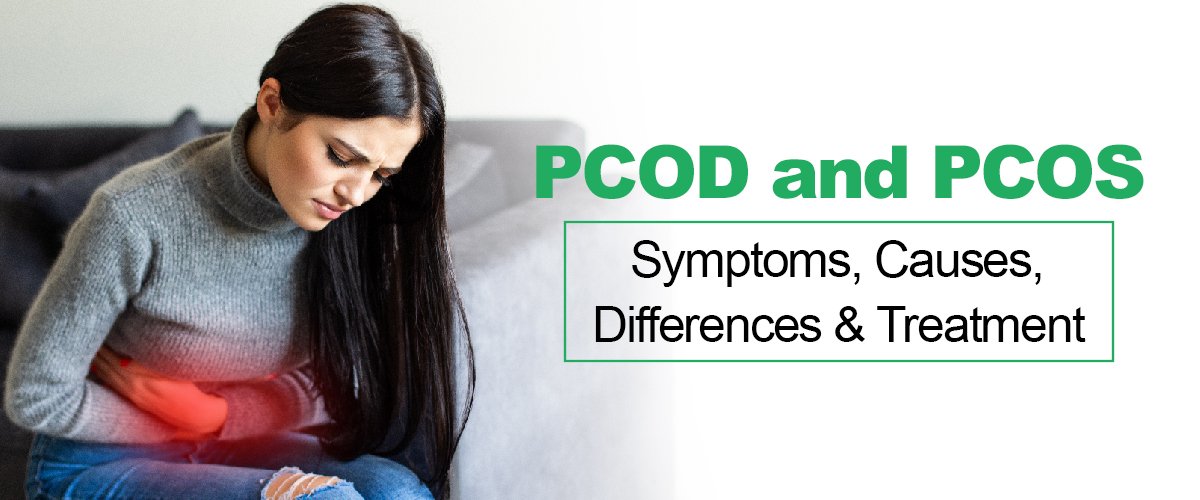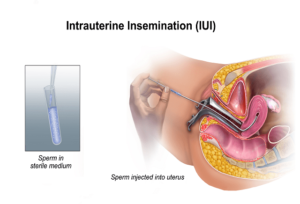We often see confusion between PCOS (Polycystic Ovary Syndrome) and PCOD (Polycystic
Ovary Disease). This confusion arises due to a variety of reasons. Sometimes, individuals
attempt to self-diagnose using online resources, which may not always provide accurate
information.
Also, there can be a lack of information about the distinctions between these two. However, let’s
first put it out there that PCOS and PCOD share a few similarities but are two different
conditions.
In this article, we will walk you through everything you must know about PCOS and PCOD,
along with their key differences. So, read ahead!
What Is PCOS?
PCOS stands for Polycystic Ovary Syndrome. It’s a common hormonal disorder that affects
people with ovaries. This condition can lead to irregular periods, excess hair growth, and cysts
in the ovaries.Some of the PCOS symptoms can also cause fertility issues and increase the risk of diabetes
and heart disease. While the exact cause is still unknown, genetics and insulin resistance are said to play a role.
The main symptoms of PCOS include:
- Irregular periods
- Excessive hair growth
- Acne or oily skin
- Weight gain
- Thinning hair or hair loss from the scalp
- Darkening of skin
- Skin tags in the armpits or neck area
- Fatigue or low energy levels
- Difficulty getting pregnant Mood swings or depression
What Is PCOD?
PCOD, or Polycystic Ovary Disease, is a common hormonal disorder that affects individuals
with ovaries. In this condition, small cysts develop on the ovaries along with irregular periods
and hormone imbalances. This condition can lead to symptoms like acne, excessive hair growth, weight gain, and fertility
issues.
The symptoms of PCOD include:
- Irregular or absent periods
- Excessive hair growth on the face, chest, or back
- Acne or oily skin
- Infertility
- Ovarian cysts
- High level of male hormones
- Skin tags in the armpits or neck area
- Fatigue or low energy levels
Key Differences Between PCOS and PCOD
Let’s take a look at the key differences between PCOS and PCOS.
Diagnosis
PCOS: Diagnosis of PCOS involves assessing symptoms such as irregular periods, excess hair
growth, and hormone imbalances, along with ultrasound findings and blood tests.
PCOD: Diagnosis of PCOD is primarily based on ultrasound findings showing the presence of
multiple small cysts on the ovaries, but it may not always include other symptoms of PCOS.
Symptoms
PCOS: Symptoms of PCOS can include irregular periods, excess hair growth (hirsutism), acne,
weight gain, and fertility issues.
PCOD: PCOD may present with irregular periods and ovarian cysts but may not always exhibit
the same range of symptoms as PCOS.
Severity
PCOS: PCOS can vary in severity, with some individuals experiencing mild symptoms while
others may have more severe symptoms impacting fertility and overall health.
PCOD: PCOD may display varying degrees of severity, but it generally refers to the presence of
ovarian cysts without necessarily indicating the hormonal imbalances seen in PCOS.
Treatment
PCOS: Treatment for PCOS focuses on managing symptoms and reducing health risks through
lifestyle changes, medications to regulate hormones, and fertility treatments if needed.
PCOD: Treatment for PCOD may involve similar approaches to PCOS, but since it primarily
refers to ovarian cysts, management may be more focused on addressing specific symptoms
and monitoring for complications.
Treatment for PCOD and PCOS-
Here are the main treatment options for PCOS and PCOS!
As aforementioned, there is no cure for PCOS or PCOD. However, with the right course of
treatment, you can manage the condition to a great extent.
Lifestyle changes
In order to regulate hormones and improve symptoms, it is essential to follow a healthy diet and
exercise regularly. The aim is to maintain a healthy weight when suffering from PCOS.
Medications
Your doctor may suggest medication, such as birth control pills can regulate periods and reduce
androgen levels. Other medications may also be suggested to help manage insulin resistance
and lower testosterone levels.
Fertility treatments
If trying to conceive, medications or assisted reproductive technologies (such as in vitro
fertilization) may be recommended.
Managing specific symptoms
Treatments like anti-androgen medications or topical creams can help with excess hair growth
or acne.
Regular check-ups
Your doctor will regularly monitor your symptoms and health markers through regular visits to
adjust treatment as needed.
Dr Kiranayee fertility clinic, Nallagandla, Hyderabad- Contact us at 9121459595





